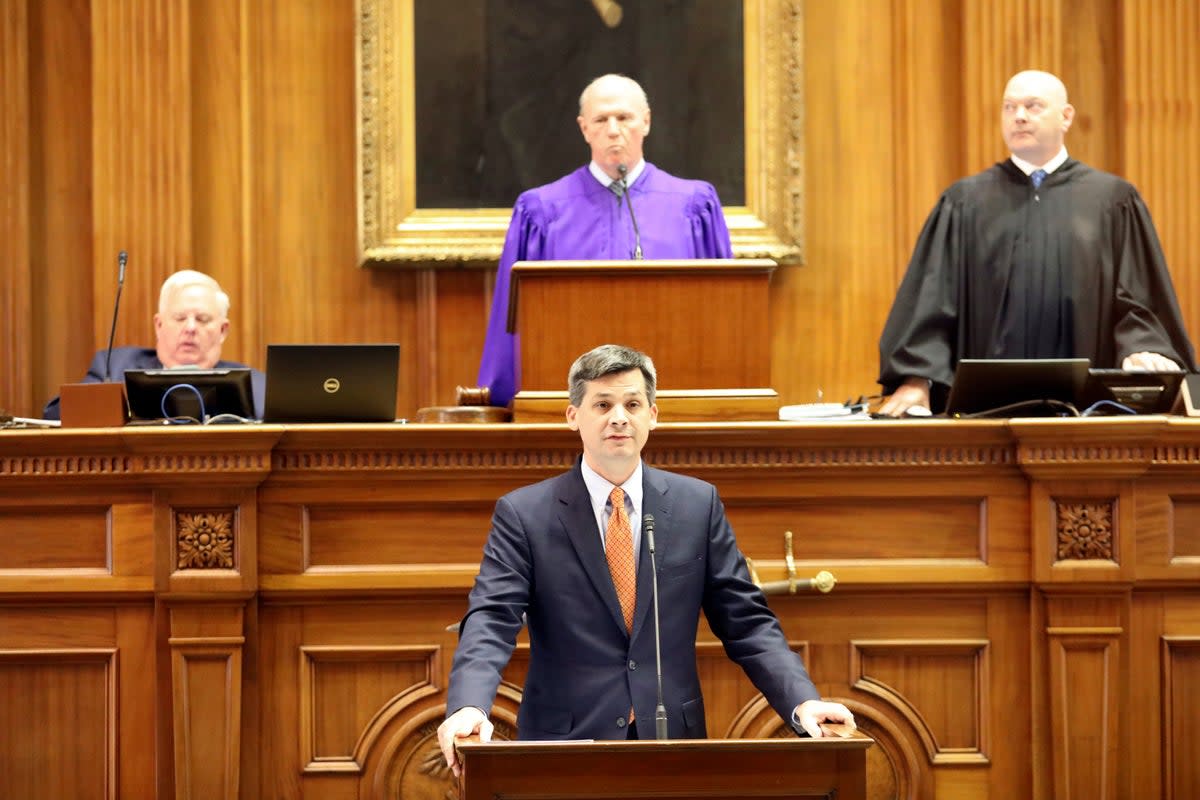South Carolina ignores objections from all its female senators to pass six-week abortion ban

The South Carolina Senate on Tuesday passed a six-week abortion ban despite the fact that every woman senator in the chamber, Republican and Democrat, voted against it.
The abortion ban will now go to the desk of Gov Henry McMaster, a Republican. If Mr McMaster does sign the bill as expected, it will be another blow to people seeking abortion care in the southeast. Nearly every other state in the region has enacted abortion bans since the fall of Roe v Wade last year.
If Mr McMaster signs the ban into law, it is likely to face a legal challenge. The South Carolina Supreme Court earlier this struck down a previous version of a six-week abortion ban as unconstitutional.
But that didn’t stop Republican men in the state legislature and the male Republican governor from pushing to pass a ban anyway. Six-week bans on abortion are considered near total bans because many people don’t know they’re pregnant until more than six weeks after conception.
This bill may make it hard for people to get legal abortion care in the state even if they do know they’re pregnant before six weeks are up. The bill requires people to have two in-person doctors’ visits and two ultrasounds before they can get an abortion.
Many Republican-controlled states have passed severely restrictive abortion bans over the past year-plus. But the optics in South Carolina, a state Donald Trump carried by just over 11 points in the 2020 election, are striking.
The five women in the South Carolina Senate all united in opposition to the bill, calling themselves the “Sister Senators.” On two previous occassions, they and several male Republican senators had united to block the Senate from passing an abortion ban sent to them by the state House.
This time, however, those male Republican senators relented and voted for the bill — meaning that it passed with only men voting for it. The Republican women senators who opposed the bill, Sens Sandy Senn, Katrina Shealy, and Penry Gustafson, pushed to put the issue to voters in the form of a ballot measure or pass a 12-week ban instead.
But they were rebuffed by the more conservative state House and Republican leadership. The New York Times reported that Shane Massey, the Senate majority leader, argued that the state had become “the abortion capital of the Southeast.”
If that was ever the case, it likely won’t be for long — and with North Carolina passing an abortion ban of its own in recent weeks, many people in the South will likely be unable to obtain legal abortion care.


